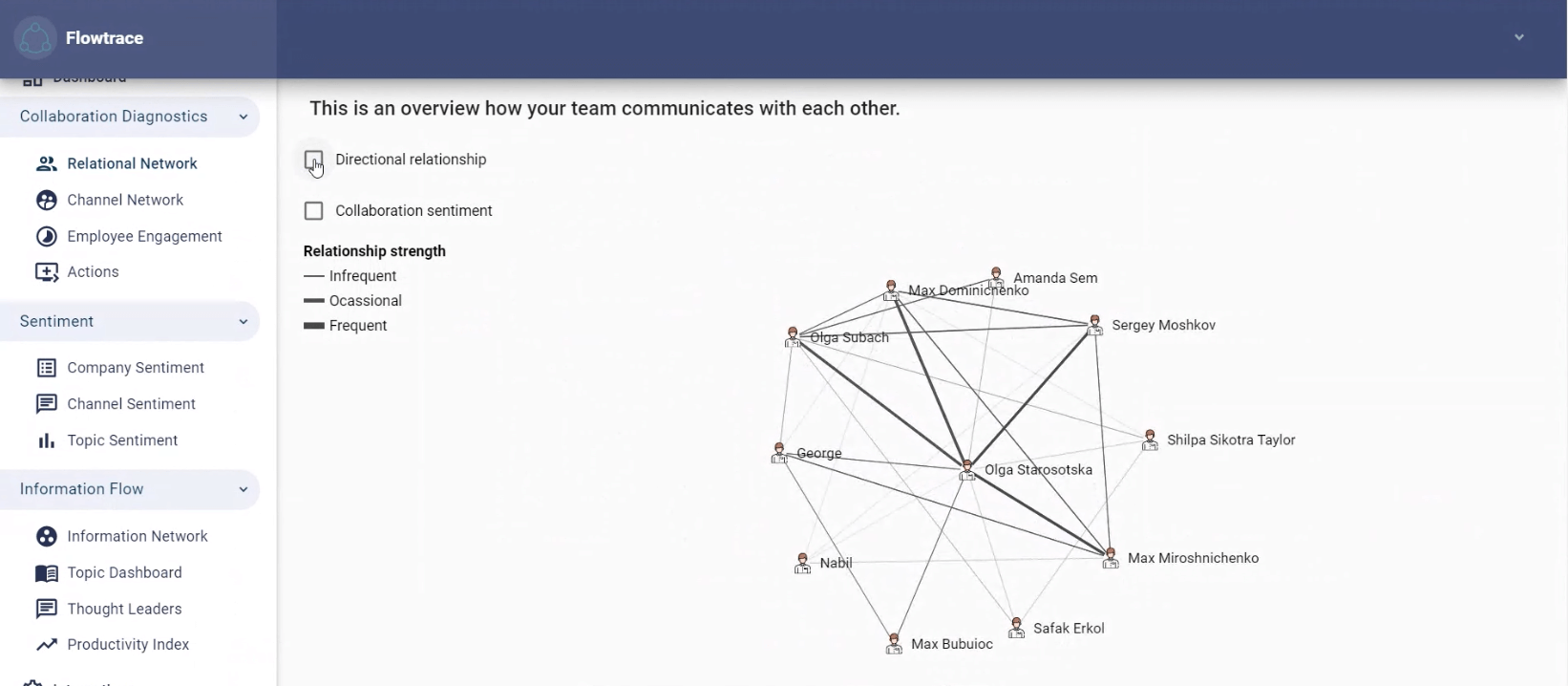We interviewed Olga Starosotska, entrepreneur and CEO of Monshare, an expense tracker app. In this part, we look at how Monshare used Flowtrace to create a transparent leadership culture and find insights in day-to-day remote management.
In this part she shares her knowledge regarding leadership and reliance on startup culture to get stuff done in a remote team.
STARTUP CULTURE AND LEADERSHIP
Generally, what's the most critical thing in an organization?
Three things:
-
Trust is the most important thing in any company.
-
You can't control how people communicate, they have different preferences, habits, and communication styles. Thus it is important to recognize the differences and understand that everyone wants to be the best version of themselves and build the best future for the company.
-
Synchronization. In all things: time, plans, commitments. No one should be left out and everyone should feel engaged.
Is culture linked to startup success?
There are companies that are known for mistreating employees that are still making money. With startups though, you're always selling a vision of the future - a promise of a better tomorrow. Neglecting your team and that promise do not go well together. With me, it comes down to the fact that I'm not building a company for making a living, but because everything I've done up to now has led me to create this company.
Do you want to lead the company in a different way than the ones you have worked at?
We like to think we choose our leadership style. It's difficult to consciously change your behavior. I always thought I picked from the best ways to lead that I've personally experienced, but of course there are a lot of unconscious personal things that affect your leadership style. It’s those aspects of your personality that usually aggravate people, that are the hardest to change. That's why leaders have to adapt and listen. Then again, those who follow leaders have to accept the leaders are also human: they can adapt their behaviors and responses, but they cannot be someone else.
We are less rational than we think.
You are more likely to work better with people who are like you. If you hire people who are very different, you will always risk not being as productive, getting into disagreements more etc. But if you only hire people who are like you, you risk losing innovation and diversity.
What about transparency and privacy?
You have to be transparent with what you are basing your leadership decisions on and I've found it a great help to show my team how they are communicating through Flowtrace. There's a distinction between helpful tracking and snooping surveillance. If the objectives are not clear, if it's not used for the benefit of the team, and you are looking at private conversations, it falls under the latter.
In a company where people don't trust leaders, they do what is measurable.
I don't think you should use surveillance tools that look at what people are writing to each other. Instead, we should use tools to resolve issues that are equally bad for the team and for the company. For example, by analyzing engagement and connectedness levels we can identify and hopefully prevent failed onboarding, isolation, and burn-out.
It all comes down to trust. People don't like confrontation and will speak in more positive tones but harbor negative thoughts. If they trust leadership they do what is good for the company.

Using Flowtrace insights to manage
You've been using Flowtrace at Monshare now. How does it help your day-to-day management? Have you found out any new insights?
I log in to Flowtrace weekly ahead of our sprint planning to see if there are any red flags that need to be taken care of. It actually does not take that much time: the information is all there to see in a glance.
Regarding future growth and scaling our approach to communication, when we hire the right leaders, the leaders of teams and departments will be there to create trust and see that the right communication and collaboration are in place within their teams. It’s then my job to make sure they adequately report and act on communication strategies and issues, as they would on any other subjects within their realm of responsibilities.

What do you need to gauge as a leader?
Some factors are more measurable than others. I’d divide them into qualitative and quantitative factors:
Qualitative – The level of transparency, openness, the kind of topics people talk about, readiness to share thoughts, and the comfort to speak your mind so you won't be lynched for your ideas.
Quantitative – The level of connectedness, how many people you need to get to decisions. It should be as few as possible, but it's of course not always the case. An ability to change and adapt fast is crucial for a startup. An ability to act on whatever has been communicated. Do we speak more or less than before? Do we have someone who is more or less engaged?
This is Part 3 of a 4-part interview. Read all of Olga’s Startup Story and how Flowtrace helped Monshare with different organizational challenges.
Growth of a Remote Startup with Flowtrace I: How to Build a Team
Growth of a Remote Startup with Flowtrace II: How to Manage Time
Growth of a Remote Startup with Flowtrace III: How to Lead with Culture
(current article)
Growth of a Remote Startup with Flowtrace IV: Communication Priorities